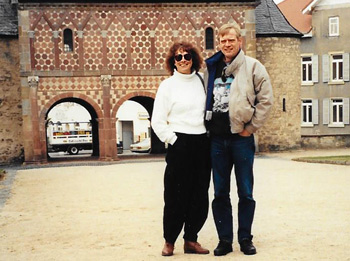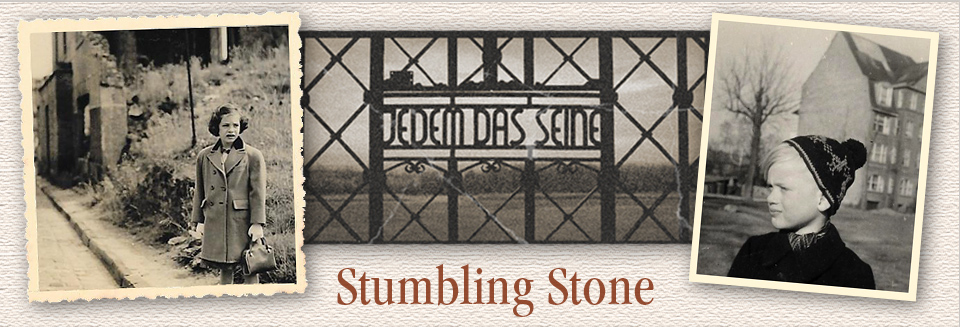
Julie and Rudi in Lorsch, Germany, 1990
Stumbling Stone – which is fiction but certainly based on what we know about our families’ histories – works to answer the questions “what really happened” and “who knew what?”
It allows us to heal the wounds of our history and focus not on that which divides us but that which unites us.
It also explores the issue of stereotyping and how people make decisions based on generalizations and assumptions.
The book underscores the fact that what happened during the war isn’t buried in the past.
If our parents do not reveal their stories to us, we are forced to invent them. How does one integrate a legacy of perpetration and victimization in the face of such deafening silence? As a psychotherapist who has worked extensively with historical and generational trauma, I found that Raab and Freestone powerfully portray the way traumatic legacies are inherited and how, if not properly mourned and processed, can come back to haunt us in future generations. The gripping narrative and moral questions raised make Stumbling Stone an important and accessible contribution to our understanding and the complexity of WWII and its aftermath.
-Armand Volkas, Psychotherapist. Founder and Director, Healing the Wounds of History
Listen to the authors talk about how they wrote and published the novel. An Ashby Village presentation March 2021
Video: Why Stumbling Stone is a fiction book |
Video: Why the name “Stumbling Stone”? |
